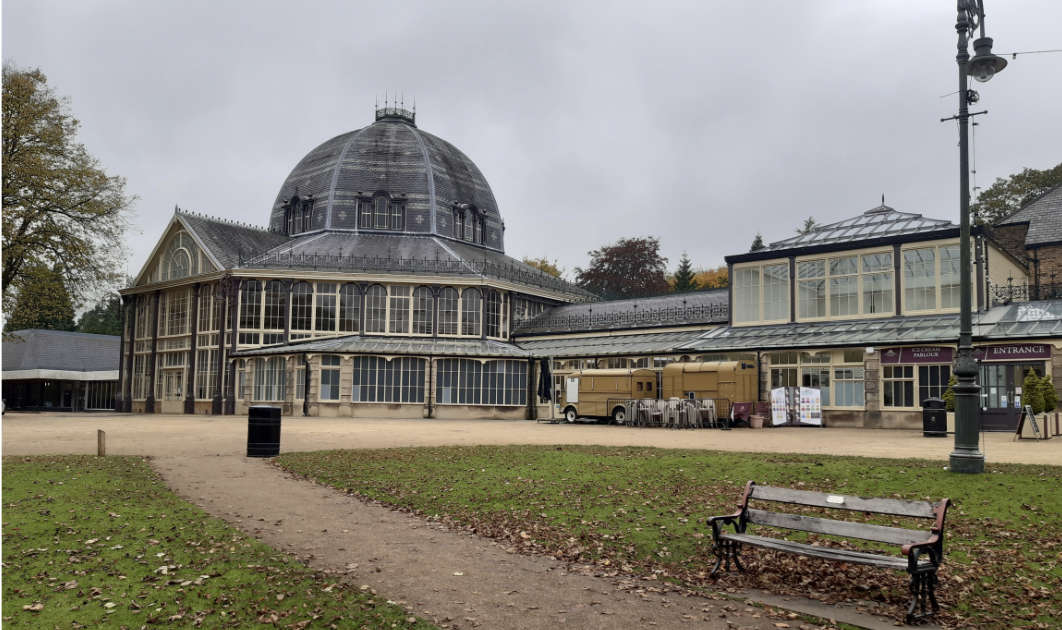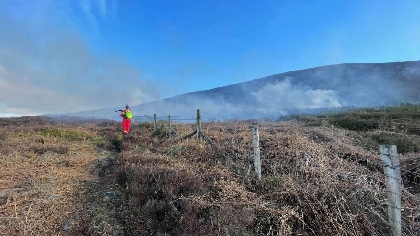
Despite over 200 objections a Derbyshire council has given the go-ahead for an electricity energy storage system in the countryside on Green Belt land near the Peak District National Park to support renewable energy plans.
High Peak Borough Council’s Development Control Committee approved Novus Renewable Services Ltd’s planning application during a meeting at Buxton’s Pavilion Gardens’ Arts Centre on December 9 for the energy storage system at Marsh Lane, New Mills, with conditions.
A council spokesperson stated: “The proposed development would provide infrastructure to support and increase the capacity for the supply of low carbon and renewable energy related energy.
“National Government have made their intentions clear in the recent consultation on changes to the National Planning Policy Framework which indicates that decision makers will be directed to give significant weight to the benefits associated with renewable and local carbon energy generation.”
The development site covers a parcel of agricultural land that spans an area of approximately 2.4 hectares to the north of Marsh Lane, on the edge New Mills, and just 1.2km from the Peak District National Park.
High Peak Borough Council noted there were 208 objections, though some were from the same individual, with concerns that there was a lack of consultation, that the system is an inappropriate development in the Green Belt, that it will create an eyesore, its proximity to a railway line and its negative impact on the setting of the Peak District National Park.
Public objections to the plans relayed by the area’s MP also included concerns about its location on Green Belt land, increased traffic, fears of overheating batteries and that any generated electricity from the development is to be used outside the county.
Although 26 letters of support for the application were received arguing that energy storage is vital for energy security and decarbonisation, any visual impact would be limited, any traffic increase would be negligible, and that the system’s battery storage will be capable of storing sufficient power for 10,000 homes which will be of significant public benefit.
New Mills Town Council objected on the grounds that Marsh Lane has a narrow vehicular access and because the ton council fears there will be significant impacts to Green Belt land and the wider natural environment.
Network Rail raised concerns the development could affect the stability of the nearby railway with fears of a potential fire risk and it has urged the developer to ensure the development meets with Network Rail requirements.
Whaley Bridge Town Council stated that it supports the development subject to any issues with Network Rail being resolved.
The Derbyshire Wildlife Trust no objections subject to conditions and Derbyshire Fire and Rescue Service also raised no objection.
Peak District National Park also requested that further mitigation would be required to reduce the effect on the National Park, as a protected landscape.
Derbyshire County Council’s highways authority raised no highway objections but it has insisted upon a number of conditions including visibility splays, a construction management plan and a roads inspection.
Under High Peak Borough Council’s planning policy the scheme amounts to an ‘inappropriate development’ in the Green Belt which means it can only go ahead if ‘very special circumstances’ are identified including providing benefits that outweigh any harm to the Green Belt.
However, the applicant argued there is a need to contribute to the urgent national need for energy to meet the needs of households and the wider economy, and that the development will make a significant contribution to the decarbonisation of the UK Economy and to the climate change emergency.
Novus Renewable Services also stressed the development will support energy security, the provision of relatively low-cost energy, the national grid and it will help avoid power cuts and there will be a contribution to local and national economies.
The plans also include an enhancement of 0.7 hectares of existing grassland as well as re-seeding of grassland around each proposed battery storage unit as well as proposals for mixed scrub, additional hedgerow and tree planting, culminating in an overall biodiversity net gain.
A council spokesman added: “The motivation and justification for the proposed development is informed by a legally binding target by the UK Government to fully decarbonising the National Grid by 2035.”
The facility will be used to harness and store energy when there is an excessive supply at the New Mills Substation and then the excess energy will be transmitted back to the national grid via the substation when there is insufficient supply to meet demand.
Any electricity stored at this site would be diverted back to the National Grid and is not for any specific region or town. The development’s expected lifespan is 35 years.


 Pétanque players bouled over by new piste
Pétanque players bouled over by new piste
 ‘Landscapes Unlocked’ offers a tantalising glimpse into Peak District’s past
‘Landscapes Unlocked’ offers a tantalising glimpse into Peak District’s past
 Davis Blank Furniss to stage free legal event
Davis Blank Furniss to stage free legal event
 'Severe chance' of wildfires as dry spell continues
'Severe chance' of wildfires as dry spell continues

